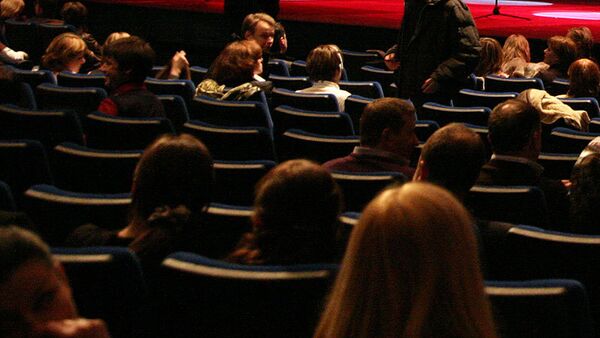January 28 (RIA Novosti) - You know those people who just can’t make it through a two-hour movie or live performance without checking their cellphones at least half a dozen times?
The people who tweet and text to their heart’s content, tapping away, their faces illuminated by the glow from their smartphones and distracting to those around them in the darkened theatre?
Turns out, they may not all be as rude as you think.
In what may well be a sign of the times, theater companies across America – like the Providence Performing Arts Center (PPAC) in Rhode Island – are experimenting with so-called “tweet seats,” setting aside a few seats for patrons who want to tweet during a concert or show.
"I think that it's important that PPAC and cultural institutions in general kind of jump on the social media bandwagon and learn to engage a broader audience," said Sarah Bertness, a freelance writer who recently live-tweeted during the PPAC’s “Million Dollar Quartet,” according to The Associated Press (AP).
"I think it's such a valuable tool," she added.
The idea is for tweeting patrons to use a special hashtag and tweet about the performance as it is happening.
Supporters see it as a way to lure in younger, social-media-savvy crowds.
And the PPAC isn’t alone. Other venues are experimenting with twitter options, including the Carolina Ballet in North Carolina, the Dayton Opera in Ohio, and the Goodspeed Opera House in Connecticut, according to USA Today.
Some theaters on Broadway in New York City have been experimenting with “tweet seats,” the AP reported.
And the idea has been mentioned to members of the National Association of Theater Owners (NATO), said NATO member Tim League.
He’s horrified by the idea.
“Texting is rude to the film creators. It is a slap in the face to every single creative professional who poured their lives into creating the film,” he wrote in a blogpost about the new trend.
“The notion that all teenagers and twenty-somethings can't sit two hours without texting is condescending,” he added, and said the only response to the trend is for the industry to adopt a hard no-cellphone policy that recognizes movie theaters as “sacred places” for fans.


